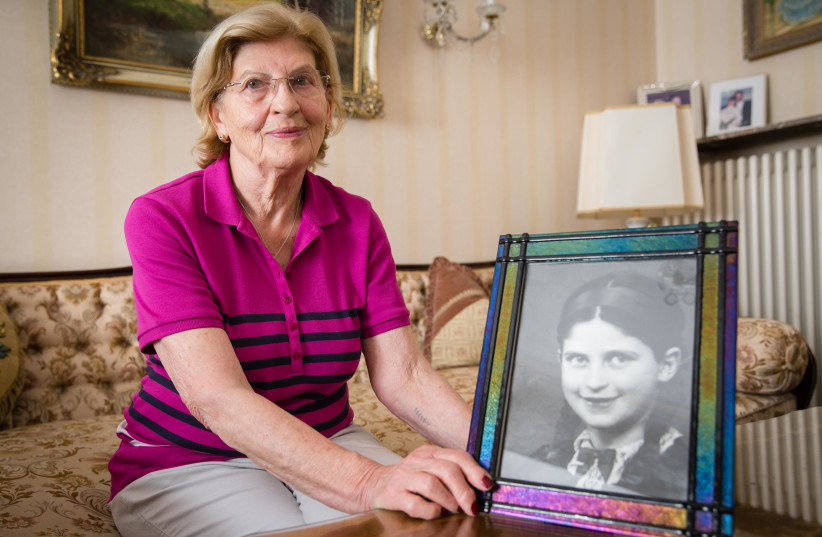Some 250 Holocaust survivors are set to tell their survival stories to students worldwide in a new program titled Survivors Speakers Bureau (SSB), the Conference on Jewish Material Claims Against Germany (Claims Conference) announced last week.
The program will see students connect with Holocaust survivors both in person and virtually, bringing the stories to light in countries and localities that have perhaps never heard such testimonies, according to the organization.
President of the Claims Conference Gideon Taylor spoke of the importance of such a program amid the rise in antisemitism across the world. “At a moment of dramatically rising antisemitism, this program tells the history and educates for the future.
“A Holocaust survivor speakers bureau of this scale and reach is unprecedented. Holocaust stories remain as important as ever, for both ends of the generational spectrum. Survivors continue to feel the enormous need to share their harrowing stories, and, encouragingly, schools continue to want to fill their rooms with living, eyewitness testimony,” he said.
Executive vice president of the organization, Greg Schneider added, “It is more important than ever that every student in every school, regardless of where they are, have the opportunity to hear directly from the Holocaust survivors who are still with us. First-hand accounts are essential to maintaining Holocaust memory and go much further to ensure people understand the impact of bigotry, antisemitism, and unchecked hatred.”

Holocaust survivor Hanne Holsten mentioned the impact of direct contact with survivors and their stories.
“It is one thing to read about the Holocaust in a textbook, a few paragraphs about the global politics of World War II and the history of Europe. It is another thing altogether to sit with someone who was deported from their hometown, stripped of everything they own, and made to live in hiding or to endure a concentration camp. If speaking directly with the few remaining survivors makes an impact on even one person, I am more than willing to participate.”
Survivor Eva Szepsi, said, “Holocaust education is crucial, especially given the current events happening around the world. My goal in sharing my own story of survival is and has always been to show the human impact, not just of the Holocaust, but of all the racist and hateful actions being taken in the world.
“If hearing my testimony helps one person understand that they too have a role in the events happening in their community, and they can stand up for what is right, then I feel it is worth it for me to go remember and share those terrible stories.”
Among US Millenials and Gen. Z, 11% blame Jews for causing the Holocaust
According to the 2020 US Millennial Holocaust Knowledge and Awareness Survey conducted by the Claims Conference across 50 states, 63% of Gen. Z and Millenials were unaware that six million Jews were murdered during the Holocaust, and 36% believed that two million Jews or less were killed. Furthermore, the poll revealed that 48% of respondents were unable to name a ghetto or a concentration camp.
When asked about responsibility regarding the Holocaust, 11% of respondents blamed Jews for the murderous event, while in New York, 19% said Jews caused it.
Regarding Holocaust education, some 49% of respondents wanted to see the subject made compulsory in schools while 80% noted the importance that it should be taught, among others, so that history does not repeat itself.
